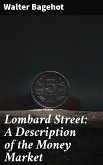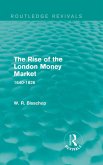In "Lombard Street: A Description of the Money Market," Walter Bagehot offers a meticulous examination of the financial mechanisms underlying Victorian England's banking system. Through a blend of rigorous analysis and clear prose, Bagehot elucidates the functions of the money market, emphasizing the importance of liquidity and the intricate relationships among banks and their role in economic stability. Written in the wake of the financial crises of the 19th century, the work is a seminal text that combines economic theory with a descriptive narrative, making it a crucial reference for understanding the historical context and evolution of modern banking practices. Walter Bagehot, a prominent Victorian journalist, and economist, brought unique insights to the financial landscape of his time. As the co-editor of the "The Economist," his firsthand experience with economic issues and a deep interest in the intersection of finance and society informed his analytical perspective. His advocacy for sound monetary policy and an understanding of psychology's role in economics shaped the thoughtful critique found within "Lombard Street." This book is essential for scholars, historians, and practitioners interested in the development of financial systems and economic theory. Bagehot's penetrating insights and articulate prose render it a timeless study that remains relevant in today's complex economic environment.
Dieser Download kann aus rechtlichen Gründen nur mit Rechnungsadresse in A, B, BG, CY, CZ, D, DK, EW, E, FIN, F, GR, H, IRL, I, LT, L, LR, M, NL, PL, P, R, S, SLO, SK ausgeliefert werden.









